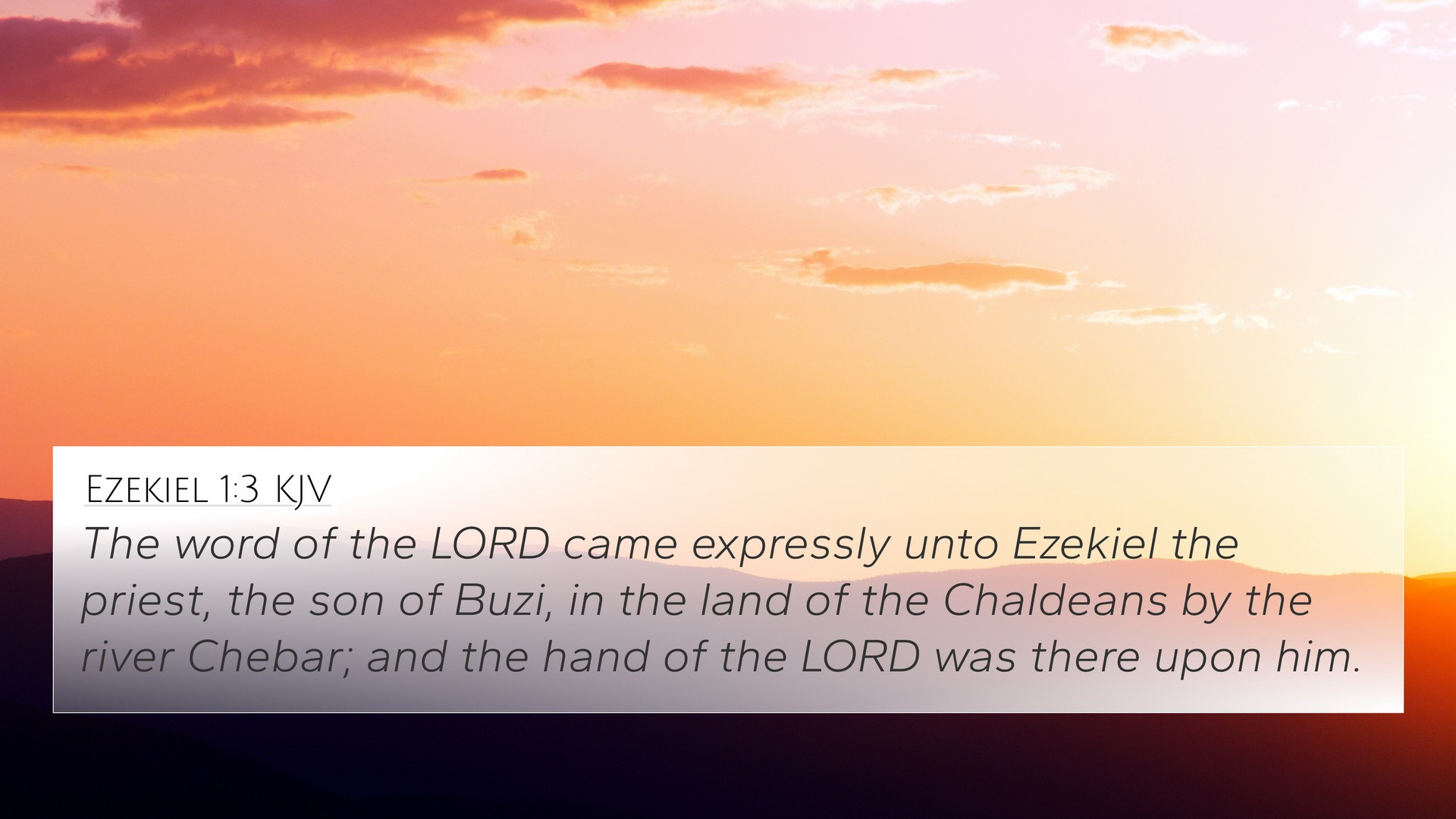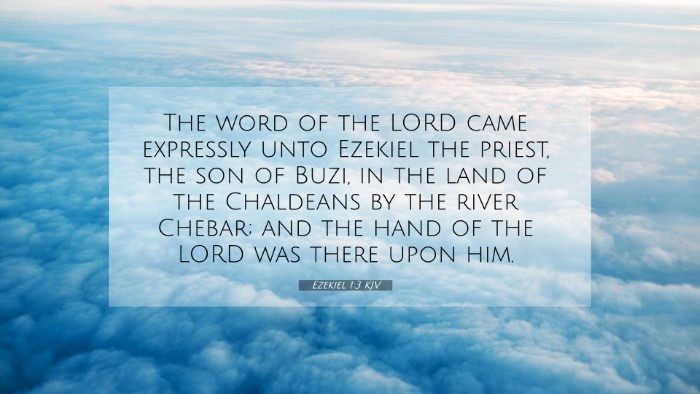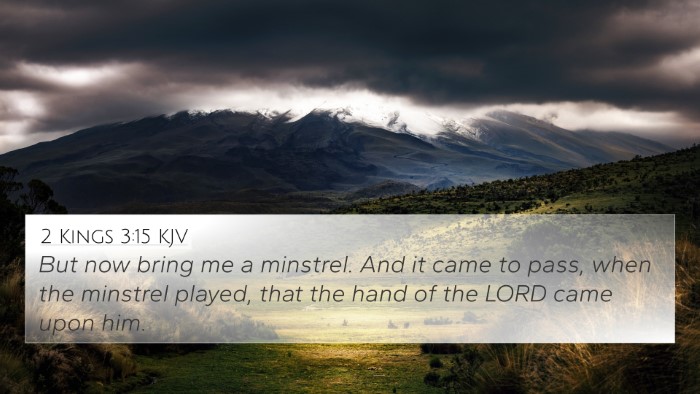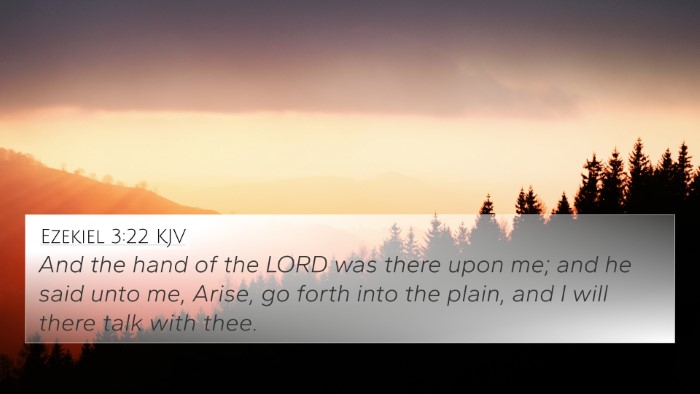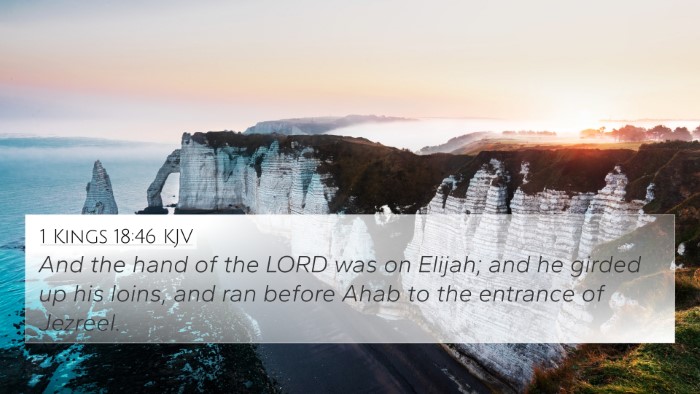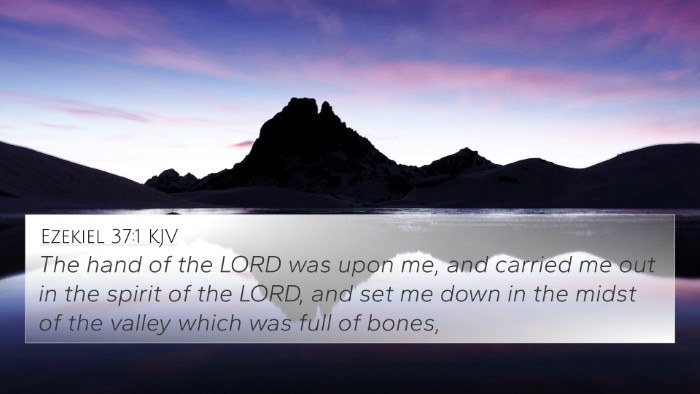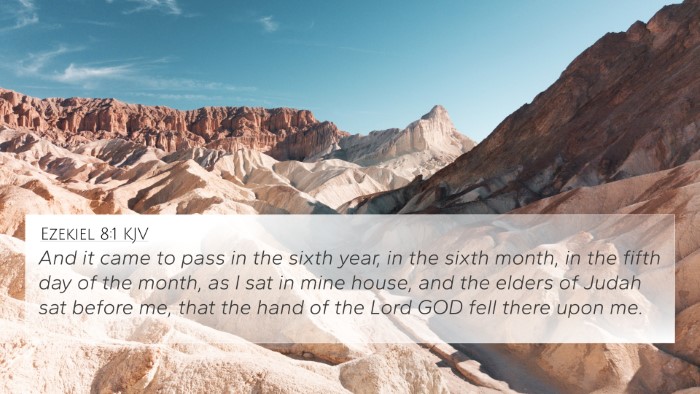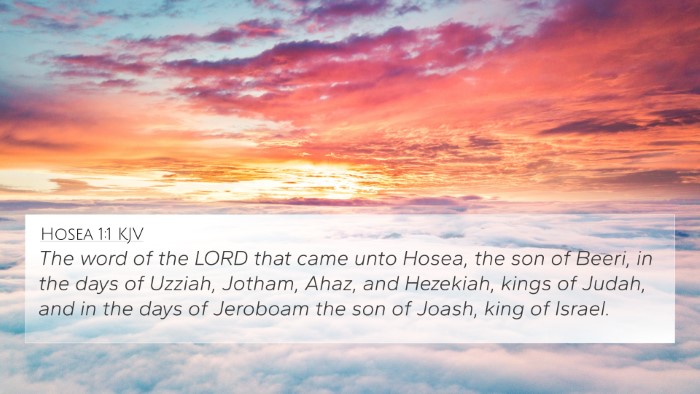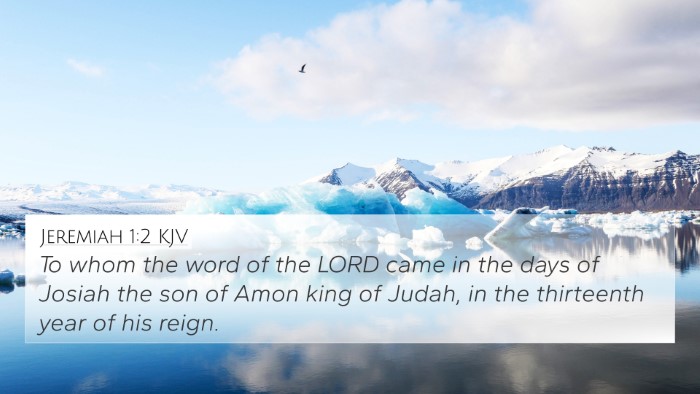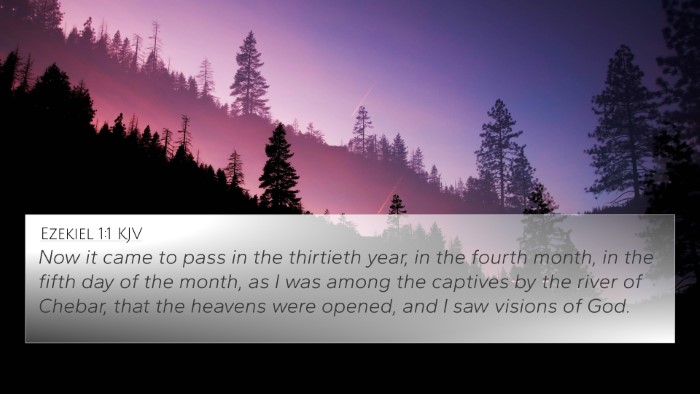Ezekiel 1:3 - Interpretation and Meaning
Bible Verse (Ezekiel 1:3): "The word of the Lord came expressly unto Ezekiel the priest, the son of Buzi, in the land of the Chaldeans by the river Chebar; and the hand of the Lord was there upon him."
Summary of Ezekiel 1:3
This verse introduces Ezekiel as both a prophet and a priest, emphasizing his background and the context of his prophetic ministry. It highlights the divine initiation of God's message and the significance of the location by the river Chebar, which denotes a time of exile and spiritual reflection.
Context and Significance
The opening chapters of Ezekiel set the stage for the prophetic revelations he received while in exile. The mention of the Chaldeans and the river signifies not only physical displacement but also spiritual turmoil and the need for divine guidance.
Key Insights from Commentaries
- Matthew Henry: Emphasizes that Ezekiel's call to prophecy came with a heavy spiritual weight and responsibility. God's communication is not only about instruction but also about empowerment and the anointing necessary for the prophetic task.
- Albert Barnes: Points out the importance of the specificity of Ezekiel's background as a priest. This role underlines his authority and the seriousness of the message he is called to deliver to a disobedient nation.
- Adam Clarke: Discusses the location of Chebar as symbolic, representing a place of desolation from which God still reaches out to His people. The 'hand of the Lord' signifies divine strength and guidance for Ezekiel in his mission.
Bible Cross-References
Ezekiel 1:3 connects with several other scripture passages that illustrate themes of divine communication, prophecy, and God's sovereignty over His people's circumstances:
- Jeremiah 1:4: “Then the word of the Lord came unto me, saying...” - A parallel in divine calling and prophetic message initiation.
- Isaiah 6:1-8: Isaiah's vision and subsequent prophetic call align with Ezekiel's own encounter with God.
- Ezekiel 3:16-17: The responsibilities of a prophet, emphasizing the urgency of delivering God's message.
- Revelation 1:1: Similar divine revelations are shown, emphasizing prophetic deliverance through the Spirit.
- Numbers 11:29: Discusses the gift of prophecy and the longing for God to speak through His chosen individuals.
- Habakkuk 2:2: “Write the vision and make it plain on tablets…” echoes the directive given to prophets by God.
- Ezekiel 2:1-5: God instructing Ezekiel to speak to the rebellious nation resonates with the call in 1:3.
Thematic Links to Other Scriptures
Thematically, Ezekiel 1:3 serves as a point connecting to broader biblical themes of:
- Divine Immediacy: The notion of God's direct communication with His servants.
- Spiritual Authority: The integration of priestly and prophetic roles as vital to understanding God’s will.
- Exile and Restoration: The historical context of loss and hope that permeates the prophetic texts.
Understanding through Cross-Referencing
Interpreting Ezekiel 1:3 through cross-referencing offers deeper insight into:
- God's unyielding presence with His people even in exile (Deuteronomy 31:6).
- The prophetic narrative style found in both the Old and New Testaments.
- The role of the prophet as a mediator between God and humanity (Romans 10:14-15).
Conclusion
In summary, Ezekiel 1:3 is pivotal for understanding the nature of prophetic ministry, the significance of divine encounters, and the appointed mission of God’s messengers. The confluence of Ezekiel's priesthood and prophetic calling reflects the broader biblical narrative that emphasizes God's ongoing relationship with His people. Through careful cross-referencing and thematic analysis, one can draw profound connections and insights from this verse to the overarching message of scripture.
Further Study Suggestions
For those interested in exploring more about cross-referencing Bible verses and thematic connections, consider the following:
- Utilizing a bible concordance to find related texts.
- Engaging in a cross-reference Bible study to enhance understanding.
- Exploring tools for Bible cross-referencing for deeper study methodologies.
